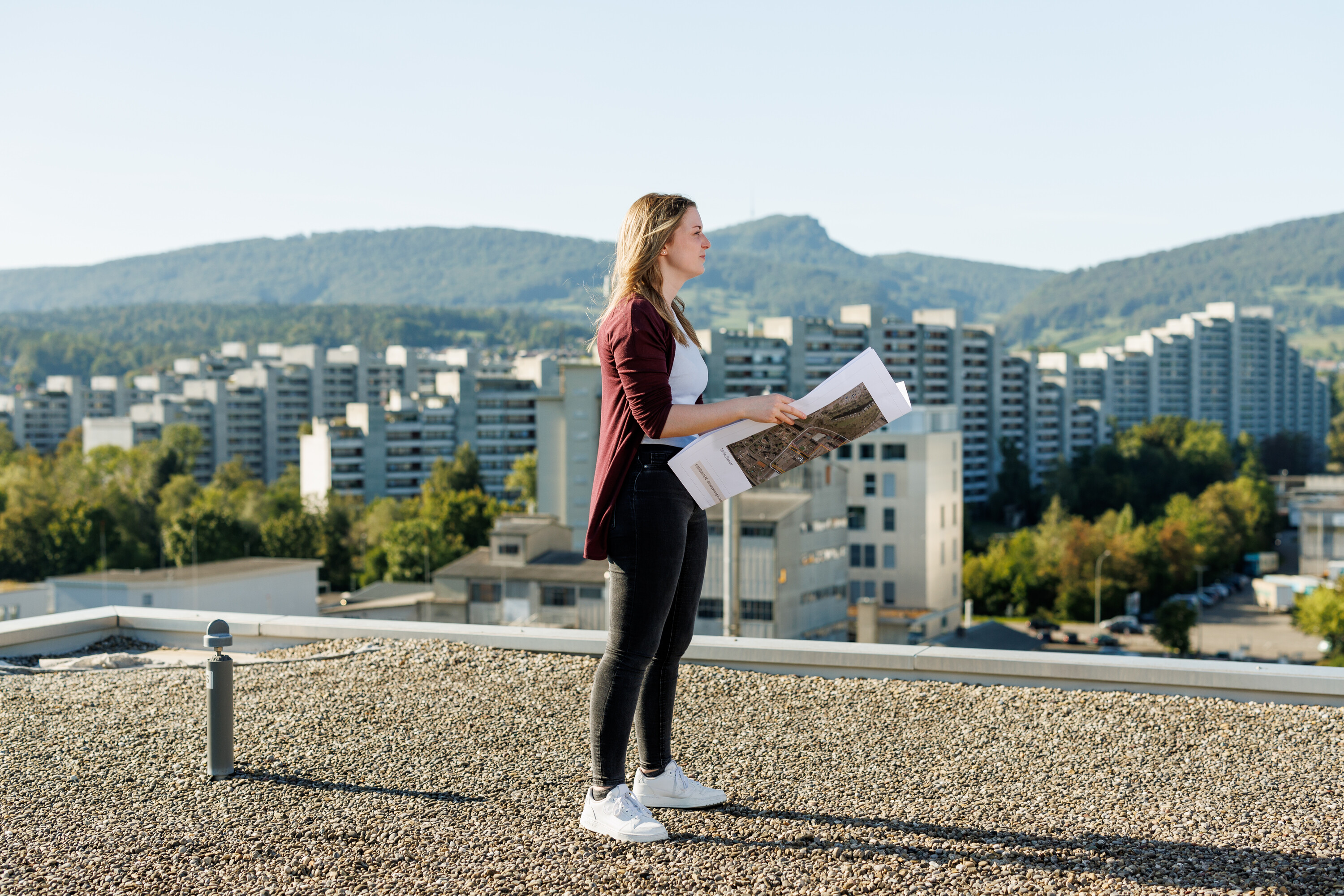Study Content
Are you considering a master’s degree in Spatial Development and Landscape Architecture? Then you will want to know what content we have to offer and what specializations you can choose from.

Are you considering a master’s degree in Spatial Development and Landscape Architecture? Then you will want to know what content we have to offer and what specializations you can choose from.
Under the Spatial Development/Spatial Planning specialization, you will examine regions, cantons and municipalities from a spatial design and arrangement perspective: this will focus on tackling methods, strategies and processes, as well as using spatial development tools and aids. Current spatial development tasks may include high-quality, sustainable inner urban development, process design, new technologies (digitalization, GIS, tools, flows), redesigning utilization planning in functional spaces and high usage densities
You will tackle urban, periurban and rural settlement structures and utilizations, as well as public space and infrastructure: the studies look at settlement development in general and focus on urban development, urban landscapes and urban renewal. Current topics include sustainable transformation, high-quality inner urban density and long-term structuring. Particular topics include supporting high usage densities whilst ensuring high-quality open areas.
You will tackle developing sustainable concepts for traffic, transport and mobility and designing mobility spaces, focusing on optimal coordination between human settlement and transport. The aim is to ensure a balance between mobility, traffic infrastructure, urban development and open spaces. You will examine current issues such as tackling sustainable forms of mobility.
You will look at landscape planning and design, with parks and gardens, as well as natural tourism and recreation planning: this will focus on the development and design of large spaces, cultural and recreational landscapes near residential areas and utilizations that shape the landscape. You will examine how to support nature and landscapes with buildings and systems and the renaturation of rivers, and you will learn about procedural topics as well as developing formal and informal planning or park management.
Through current, practical tasks, you will gain aesthetic, social and environmental knowledge of open spaces in settlement areas. The development of open spaces and creative approaches to complex planning and design challenges are key parts of this training. Urban open spaces, the living environment, local recreation and the changing urban climate are all key areas of focus.
Additional classes are organized as one-week blocks in the fields of spatial, urban and open-space development. There is one class per semester, requiring preparation and follow-up. In June, the class is generally run as a seminar trip. Interdisciplinary classes offer contact with specialists from the practical world as well as trips to visit important plans and projects.
The current list of topics with suggestions for possible work can be obtained from Avivah Conen-Longini: avivah.conenlongini@ost.ch.
Module description in German available:
You complete one third of your master's degree as theory and context modules. Theory modules with technical-scientific focus (TSM) and advanced fundamentals (FTP) provide you with long-term knowledge and train your skills in abstract thinking. You complete your timetable with context modules (CM) from the fields of management, communication and culture.
Each student receives intensive support from a student advisor. The first conversation with a student advisor is after acceptance. You work together to create a timetable that matches your interests and objectives. Your individual study agreement sets out your study objectives and the modules selected to achieve them.
Professor Tanja Herdt Phd
Head Profile Spatial Development and Landscape Architecture
+41 58 257 48 93
tanja.herdt@ost.ch
Julia NiepelMSE Master-OfficeFachverantwortliche Master-Office
+41 58 257 44 07julia.niepel@ost.ch